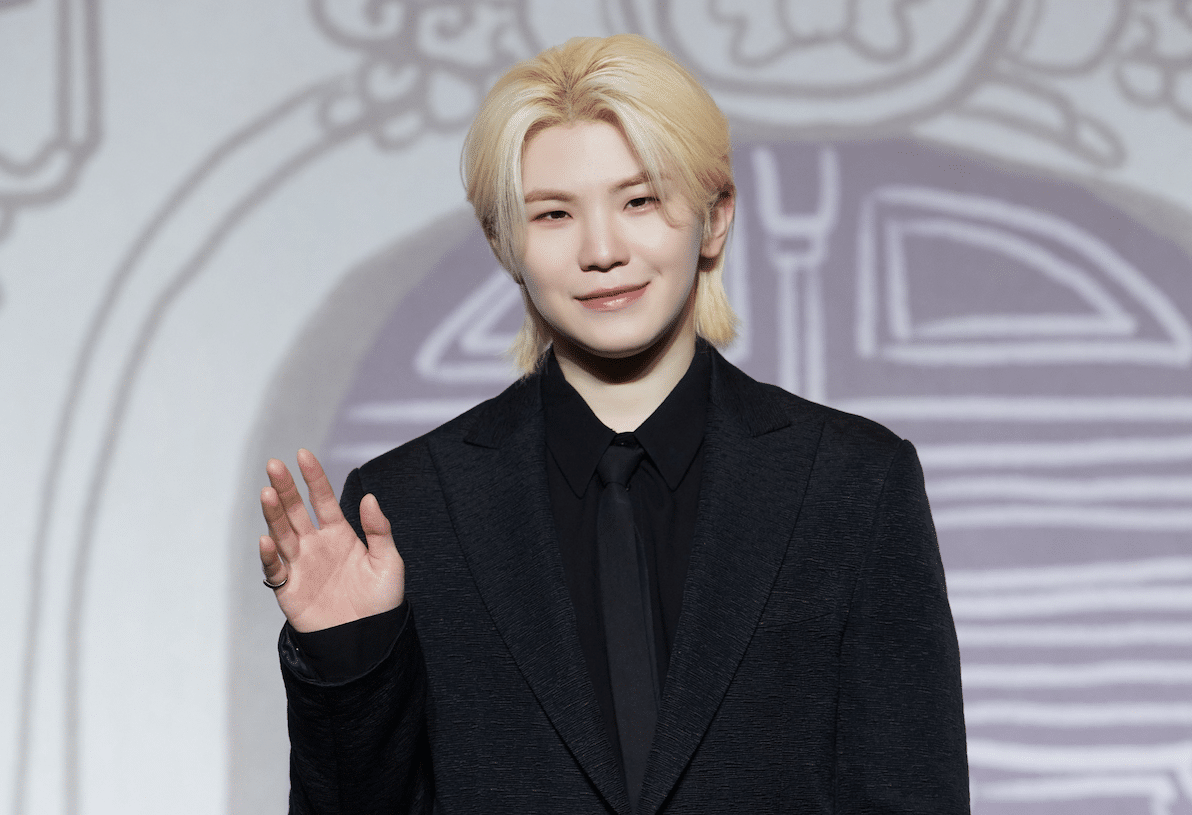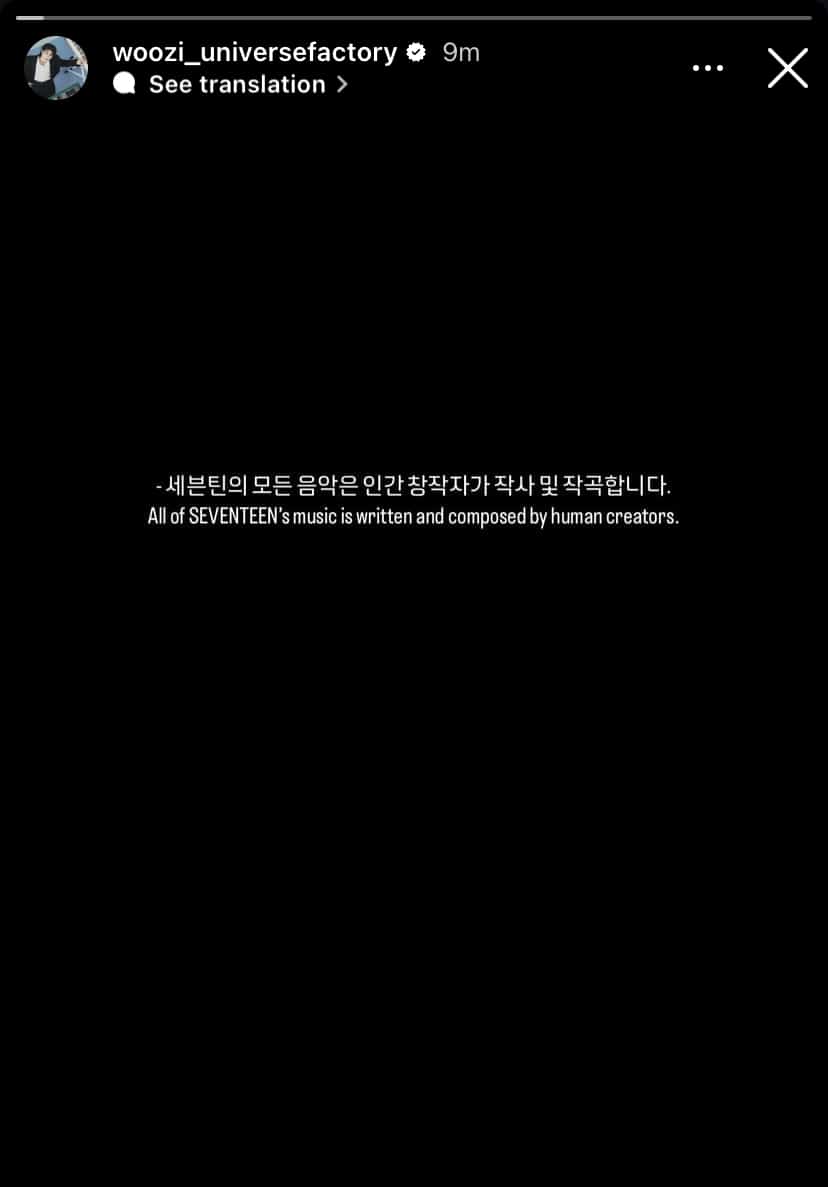Seventeen’s Woozi debunks claims group uses AI in creating music

Woozi of Seventeen | Image: Courtesy of Pledis Entertainment
Woozi of Seventeen refuted claims that their group uses artificial intelligence (AI) when writing or creating their music.
Woozi, who also co-writes the group’s songs, took to Instagram to affirm that their songs are created by humans, writing, “All of SEVENTEEN’s music is written and composed by human creators.”
This statement comes after media outlet BBC released an article titled “Will K-pop‘s AI Experiment Pay Off?” which stated that Seventeen’s recent single, “Maestro,” was an example of the group’s attempt to use artificial intelligence in the creative process.
The piece reportedly quoted Woozi as saying that he was “experimenting” with AI when making music for the group, as they “practiced making songs with AI to develop along with technology rather than complain about it.”
A spokesperson from the group’s agency, PLEDIS Entertainment, declared that “it is not true that AI was used for the lyrics of Seventeen’s songs,” adding that they requested that the article be corrected, which has since been re-edited.

Image: Instagram/@woozi_universefactory
Korean outlet Newsis said Woozi’s comments were reportedly misconstrued, saying that the original statement was as follows: “I’ve tried writing and composing lyrics with AI, of course. Rather than complaining, I’ll practice in step with it. I’m looking for shortcomings and thinking about what strengths there are.”
“Technology is advancing rapidly. I’m thinking about how to maintain our unique identity in that context. I thought that we had good chemistry because we were able to form a good sense of empathy while filming the music video with the directors.”
Meanwhile, fans expressed their outrage over the media outlet after Woozi’s statement.
Some of the reactions from Korean netizens in an online forum read thus: “Are they being discriminatory?” “Do they think Korea is that easy?” “They should have admitted that there was an error in their report” and “They have always loved reporting on the ‘dark sides’ of K-pop.”